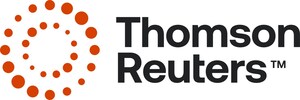Thomson Reuters Trademark Report Reveals New Challenges and Opportunities for Pharmaceutical Brands
NEW YORK, June 8, 2011 /PRNewswire/ --
- Pharmaceutical trademark applications surge to compensate for increased FDA and EMA rejection rates, industry best practices for naming safety gain traction
According to a report published today by Thomson CompuMark, part of Thomson Reuters, the pharmaceutical industry has begun to adapt to stricter governmental brand name standards globally by rapidly increasing the number of trademarks it files for every new drug. These newer standards by the U.S. Food and Drug Administration (FDA) and European Medicines Agency (EMA) are part of an effort to prevent look-alike/sound-alike pharmaceutical brand names and have led to increased rejection rates of new drug names.
The special report, Pharmaceutical Trademarks: How to Survive the Name Game - New Challenges and Opportunities for Pharmaceutical Companies, tracks trends in pharmaceutical trademark activity over the last 30 years, incorporates input from leading trademark attorneys and pharmaceutical industry executives and analyzes trademark initiatives at the FDA and EMA to shed light on this critical issue. Following are some of the key observations in the analysis:
- FDA and EMA Rejection Rates Up: The long-term FDA trademark
rejection rate is 30%, but it has increased to approximately 36% in
recent years as the organization has adopted a more stringent approach
to brand approvals. Combined, the FDA and EMA are rejecting 40%-50% of
pharmaceutical trademarks each year.
- More than 300% Increase in Global Pharma Trademark Filings:
Between 1980 and 2010, the number of pharmaceutical trademarks filed
increased by more than 300%. A total of 238,010 pharmaceutical
trademarks were filed globally in 2010.
- China Filing Most Pharmaceutical Trademarks in 2010: Chinese
firms filed 36,105 pharmaceutical trademarks in 2010, more than any
other region globally. China was followed by the US (27,545) and India
(26,123). Some surprise emerging markets such as Vietnam, Venezuela and
Turkey were also among the top 10 countries filing the most drug
trademarks in 2010.
- FDA Pilot Program Paves Way to Industry Best Practices: The
FDA has initiated an industry-wide pilot program designed to improve
consumer safety, streamline the review process and make regulatory
decisions more transparent. By fostering collaboration with the
pharmaceutical industry, this program has led to the development of
several best practices that will contribute to the standardization of
the trademark process.
"Pharmaceutical companies are facing more hurdles than ever to get new drugs to market, but, in the long run, the steps they are taking now to adapt to the new regulatory reality will improve safety and efficiency in the marketplace," said Martin Burke, managing director of Thomson CompuMark. "The key to that transition will be giving stakeholders access to the information they need to make informed decisions. We will continue to help the process by developing analytics that help brand owners reduce risk by properly vetting new trademark names on a global basis."
This report was compiled using Thomson CompuMark data to identify trends in pharmaceutical trademark applications and top filers by company and country. Thomson CompuMark Pharma Search reports allow pharmaceutical brand owners and their legal teams to screen trademark names globally, across different sources to review critical information quickly and efficiently, identifying potentially troublesome naming constructs before they ever become a hindrance to the new drug approval process.
To view the full report, Pharmaceutical Trademarks: How to Survive the Name Game - New Challenges and Opportunities for Pharmaceutical Companies go to: http://compumark.thomson.com/do/pharma_special_report.
Thomson Reuters
Thomson Reuters is the world's leading source of intelligent information for businesses and professionals. We combine industry expertise with innovative technology to deliver critical information to leading decision makers in the financial, legal, tax and accounting, healthcare and science and media markets, powered by the world's most trusted news organization. With headquarters in New York and major operations in London and Eagan, Minnesota, Thomson Reuters employs more than 55,000 people and operates in over 100 countries. For more information, go to http://thomsonreuters.com.





Share this article